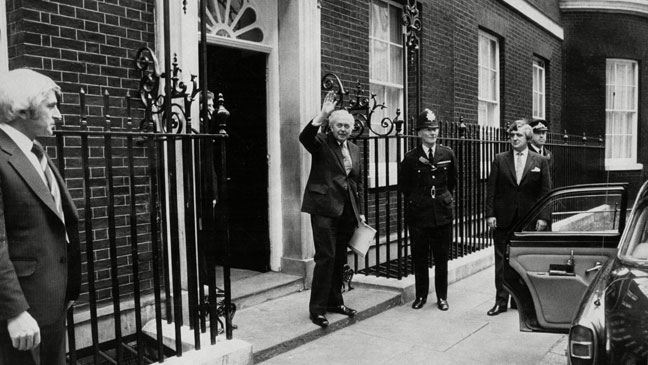No one can be surprised at Theresa May's departure from Downing Street being announced yesterday. After months of presiding over a national disintegration, it was only a matter of time.
At least, this was the tone of much of the media coverage of her departure. Which got me wondering, as, if you think about it, it is only a matter of time before all Prime Ministers leave office. Even Tony Blair and Margaret Thatcher, at the height of their power, flush from their landslide victories, were only temporary occupants of Number 10.
Much has also been made of how May is going at a time which is not of her choosing. Again, this left me thinking, doesn't that happen to all of them? In my lifetime, Margaret Thatcher was defenestrated, John Major was buried beneath a landslide, Tony Blair was hounded from office by his own party, Gordon Brown saved the world but not the election, and then David Cameron decided to save his party with the referendum. And we all know how that went.
This seems a pretty sorry record, even for those on that list deemed to be successful leaders. Enoch Powell once said that "All political lives, unless they are cut off in midstream at a happy juncture, end in failure, because that is the nature of politics and of human affairs."
That definitely appears to be the case recently. But has it always been like that?
So, for all the Prime Ministers since the Second World War, here is when they left office, and why.
(You're welcome)
Theresa May- 2019, failing to deliver the results of the referendum.
David Cameron- 2016, losing the referendum.
Gordon Brown- 2010, election defeat (Well, he was unable to remain as Prime Minister in a hung parliament, but you know what I mean).
Tony Blair- 2007, conflict between Blairites and Brownites inside Labour pushed him out.
Major- 1997, landslide defeat of epic proportions.
Margaret Thatcher- 1990, whole multitude of reasons (poll tax, personality clashes, European integration, voter fatigue, party fatigue, the fact even some Tories thought she was absolutely insane).
James Callaghan- 1979, election defeat.
Harold Wilson- 1976, resigned.
Edward Heath- 1974, election defeat (Again, unable to remain Prime Minister in a hung parliament).
Harold Wilson- 1970, election defeat.
Alec Douglas-Home- 1964, election defeat
Harold Macmillan- 1963, illness (Although in reality Macmillan was looking for a way out after a very turbulent couple of years).
Anthony Eden- 1957, Suez Crisis, plus the fact his health collapsed due to the strains of running the disastrous government that he did.
Winston Churhill- 1955, suffered a stroke in office, and his health, plus advancing age, led him to go into serious decline.
Clement Attlee- 1951, election defeat (in a setup that could only happen in Britain, Attlee polled Labour's highest ever number of votes, more than Churchill, and still somehow ended up losing).
Winston Churchill- 1945, election defeat, despite leading the country to victory in the Second World War.
Amongst the people turfed out over election defeats, hung parliaments, illnesses, and party political intrigues, the end of one premiership stands out. In 1976, Harold Wilson resigned as Prime Minister because he could.
Both at the time and since, speculation has been rife. Were secret documents stolen from Downing Street in the weeks before, causing Wilson to go? Was his adviser's brother involved in fraud? Was he having an affair with his adviser? Had some shadowy part of MI5, or the South African security service, got something against him? Was he a Soviet spy? Was he ill, either with the colon cancer that would claim his life in 1995, or could he detect the early stages of Alzheimers that blighted his famous memory?
Or was it simply that he had always intended to go on his own terms? By 1976, Wilson had served as Prime Minister for nearly 8 out of the last 12 years, and he was exhausted. Even before his shock defeat in 1970, he had been telling people he didn't intend to serve as Prime Minister longer than 8 years, before he'd hand over to someone else. With his second government facing horrendous difficulties, and Wilson having recently turned 60, maybe it seemed like the time to honour his word and move on. Whatever it was, Wilson stands alone in postwar politics in having left on his own terms.
Wilson in 1976, becoming the only British Prime Minister in postwar history to leave Downing Street on his own terms.
As we watch Theresa May prepare to end her disastrous premiership, it is worth reflecting that, for most Prime Ministers, the end is never how they imagine it. Every Prime Minister bar one has been forced out of office at a time not of their choosing, having failed to achieve the goals they wanted. The Tory MPs scrambling to replace May should probably take note.

No comments:
Post a Comment